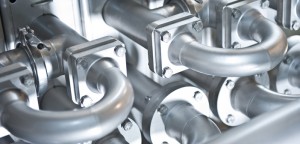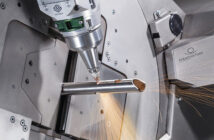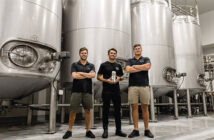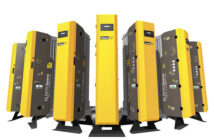
Processes for extending the shelf-life, and safe hygienic procedures, are crucial factors in the production process. This is true for all types of beverage. It was back in 2007 that Krones AG, Neutraubling, Germany, began to manufacture its own shell-and-tube heat exchangers, so as to expand its in-house value creation and its product portfolio for process technology.
Processes for extending the shelf-life, and safe hygienic procedures, are crucial factors in the production process. This is true for all types of beverage. It was back in 2007 that Krones AG, Neutraubling, Germany, began to manufacture its own shell-and-tube heat exchangers, so as to expand its in-house value creation and its product portfolio for process technology.
This sturdy, ultra-versatile piece of kit for thermal product treatment, installed in the VarioFlash and VarioAsept flash pasteurisers, was accepted very promptly by the market. Early this year, Krones had already delivered its one-hundredth shell-and-tube heat exchanger.
Over the course of the past seven years, Krones has continually design-enhanced the technology of its shell-and-tube heat exchangers, as well as upgrading the in-house testing and dimensioning options.
Developing a modularised, compact frame construction reduced the unit’s footprint significantly. A quantum leap forward in terms of dimensioning expertise and equipment performance kick-started the development of a surface structure purposefully matched to the products involved: the cross-corrugation featured can reduce the exchanger surface area required by up to 50 percent, particularly for the principal products of relevance to Krones, such as medium-viscous juices. Production operations qualify for ASME certification from the American Society of Mechanical Engineers.
In 2009, the shell-and-tube heat exchangers were then for the first time also installed in a UHT (ultra-high temperature) system for milk and milk-based mixed drinks. The process technology involved has likewise, with these solutions, acquired a respected status on the market independently of Krones’ own filling line business, and has been purchased worldwide for autonomous projects in the fields of juice and milk-based mixed drinks. Because of the ongoing trend towards thermal treatment of more complex suspensions (e.g. fruit juice with fruit cells/particles, or milk with cereals), the design has had to be adapted to suit the flow behaviour of suspensions. The result of these efforts was a reduction in particle damage of up to 31 percent in comparison to previously known systems. The output spectrum of these modularised systems ranges from 5,000 to 60,000 litres per hour.
By delivering the 100th shell-and-tube heat exchanger manufactured in-house within just seven years, Krones can unequivocally substantiate its corporate competence in process technology for beverages.
The 100th system will be demonstrating its versatility at the prestigious beverage producer PT Singa Mas International in Indonesia, where it will be gently ensuring aseptic safety and an extended shelf-life for products like milk-based mixed drinks, green tea, Cafe Latte, orange juice with pulp, and energy drinks. The product will be thermally treated for four seconds at 140 degrees Celsius.
Thanks not least to fit-for-purpose deployment of the above-mentioned cross-corrugated tubes in selected sections, the 100th system is a compactly dimensioned piece of kit with a flexible output of up to between 16 and 24 cubic metres per hour using a manageable exchanger surface area of 290 square metres.




























































































